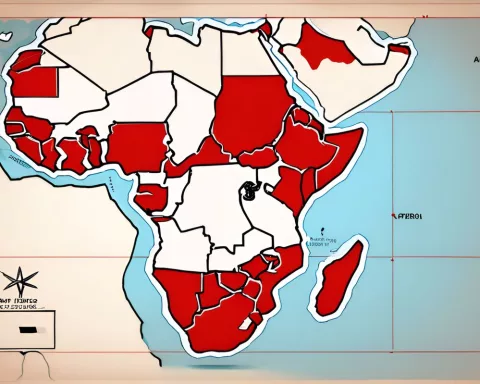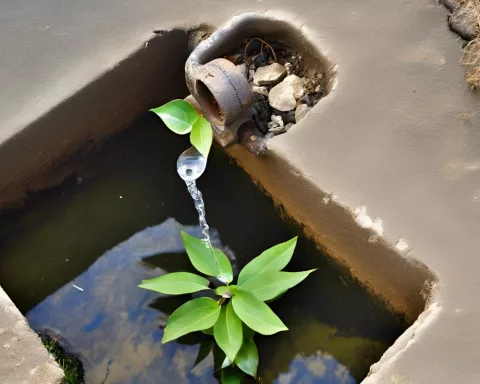Dr. Nobuhle Nkabane emphasized the importance of beneficiation, boosting exploration, and involving women and youth in the extraction and exploitation of natural resources to revolutionize the African mining industry at the thirtieth session of the Investing in African Mining Indaba. Africa has substantial reserves of various minerals and petroleum resources, making it a leader in eco-friendly industries. However, underdevelopment persists due to the “pit-to-port” methodology, and the solution is to process resources locally to secure benefits for Africa.
Unveiling the African Vision: A Glimpse into the Intergovernmental Summit. Dr. Nobuhle Nkabane discusses opportunities and hurdles in the African mining sector at the thirtieth session of the summit held at the Investing in African Mining Indaba. Africa holds substantial reserves of various minerals and petroleum resources, making it a leader in eco-friendly industries. However, the continent’s underdevelopment persists due to the “pit-to-port” methodology. The solution is to process resources locally to secure benefits for Africa.
Nestled within the bustling Investing in African Mining Indaba at the Westin Hotel, Dr. Nobuhle Nkabane, the esteemed Deputy Minister of Mineral Resources and Energy, engaged with a select gathering. This included noteworthy guests, investment enthusiasts, and business leaders. The summit, celebrating its thirtieth session, served as a dynamic platform for discussing opportunities and hurdles in the mining sector- a cornerstone of Africa’s progress.
Dr. Nkabane ignited the gathering with Africa’s master plan, Agenda 2063. This comprehensive plan sketches a transformative journey for the continent, aspiring to enable inclusive socioeconomic growth, foster peace, and fortify Africa’s stance as a vital global contributor.
Africa is a goldmine of minerals and petroleum resources, holding substantial reserves of Platinum Group Metals, phosphate rock, cobalt, manganese, chromite, graphite, copper, coal, and uranium. Nkabane highlighted South Africa’s dominance in this arena, referencing the Petroleum Agency of South Africa’s (PASA) estimates of the country’s vast oil, gas, shale gas, and coal bed methane reserves. These natural gifts, she pointed out, make Africa a leader in the transition towards eco-friendly industries.
Addressing Africa’s Underdevelopment: The Importance of Beneficiation
Despite its rich reserves, Africa continues to grapple with underdevelopment. A large chunk of the continent’s resources are shipped out in their raw form, only to come back as manufactured goods. This “pit-to-port” methodology has led to a loss of jobs and revenue that could have stayed within Africa. Nkabane underscored the significance of beneficiation, or local processing of resources, to secure these benefits for Africa.
As an outspoken supporter of industrialization and intra-African trade, Nkabane postulated that if more goods produced in Africa are consumed within its borders, it could act as a crucial accelerator for development. She acknowledged the African Continental Free Trade Area (AfCFTA) as a potential game-changer, stimulating entrepreneurship and exports of manufactured goods.
Overcoming Challenges in the Mining Industry
The task at hand, however, is to revolutionize the African mining industry. Nkabane underscored the need to boost exploration, encourage the emergence of new mines, and ensure the involvement of women and youth in the extraction and exploitation of natural resources. South Africa’s Department of Mineral Resources and Energy (DMRE), in partnership with the Industrial Development Corporation (IDC), launched an exploration fund to aid qualifying junior miners in line with this goal.
Simultaneously, the DMRE is determined to assist artisanal and small-scale miners through a dedicated fund, providing financial support for capital equipment. This initiative holds the potential to enhance economic inclusion in areas afflicted by unemployment, severe poverty, and inequality.
Nkabane acknowledged the obstacles that must be surmounted, like logistics infrastructure and electricity supply. The government is taking steps to tackle these problems, with plans to allocate resources and partner with key stakeholders.
Towards a United, Prosperous Africa
Ensuring affordable energy access for all Africans is a top priority, necessitating collaboration among African nations. Nkabane applauded the cooperative spirit shown at COP 28, where forward-thinking African countries reached a balanced consensus on moving towards a low-carbon economy.
In conclusion, Nkabane reaffirmed South Africa’s dedication to pushing forward the African Agenda 2063, pledging to cultivate a united, prosperous continent. She reassured that her government would persist in contributing to the peace, unity, and development of not only the African continent but also the entire world.
What is the African Vision discussed at the Intergovernmental Summit?
The African Vision discussed at the Intergovernmental Summit is Agenda 2063, a comprehensive plan for transformative journey for the continent, enabling inclusive socioeconomic growth, fostering peace, and fortifying Africa’s stance as a vital global contributor.
What is the “pit-to-port” methodology and how does it affect Africa?
The “pit-to-port” methodology is the shipment of a large chunk of Africa’s resources in their raw form, only to come back as manufactured goods, leading to a loss of jobs and revenue that could have stayed within Africa.
What is beneficiation and how does it help Africa?
Beneficiation is the local processing of resources, securing benefits for Africa through industrialization and intra-African trade, leading to the consumption of more goods produced in Africa within its borders, acting as a crucial accelerator for development.
What are the obstacles that must be surmounted in the African mining industry?
The obstacles that must be surmounted in the African mining industry include logistics infrastructure and electricity supply, which the government is taking steps to tackle through resource allocation and partnerships with key stakeholders.
What is the African Continental Free Trade Area (AfCFTA) and how does it help Africa?
The African Continental Free Trade Area (AfCFTA) is a potential game-changer, stimulating entrepreneurship and exports of manufactured goods, acting as a crucial accelerator for Africa’s development.
What is the South African government’s dedication towards pushing forward the African Agenda 2063?
The South African government is dedicated to pushing forward the African Agenda 2063, pledging to cultivate a united, prosperous continent, persisting in contributing to the peace, unity, and development of not only the African continent but also the entire world.












